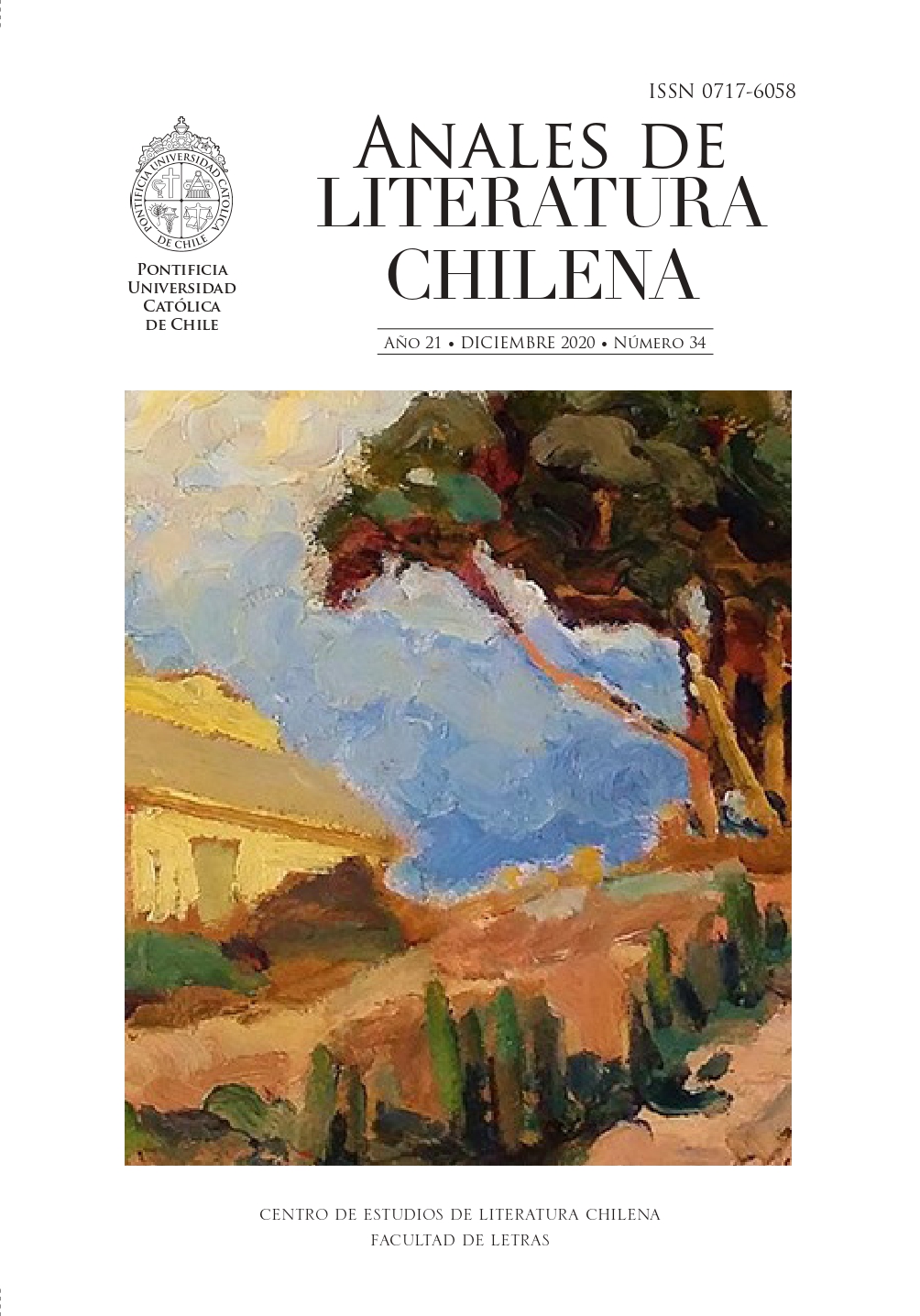THE Virus of parisitis in three chilean novels: a journey into Baudelaire’s ideal
DOI:
https://doi.org/10.7764/ANALESLITCHI.34.03Keywords:
Blest Gana, Joaquín Edwards Bello, Marquis de CuevasAbstract
The world of pleasure offered by the European Belle Époque, as imagined by the South American elite, was incarnated in a romanticized vision of Paris that was pitted against native ennui. This conflict can be productively compared to the tension between ideal and spleen explored decades earlier by Baudelaire in The Flowers of Evil (1857). A Chilean example of this phenomenon can be seen in two emblematic Chilean novels, Alberto Blest Gana’s Los trasplantados (1904) and Joaquín Edwards Bello’s Criollos en París (1933), in which characters become infected by parisitis, the addiction to the corrupting pleasures of the city. Edwards Bello’s novel includes the character of Jorge Dueñas, a thinly veiled portrait of the extraordinary socialite Jorge Cuevas, who, in turn, in his novella El amigo Jacques (1912), makes a character out of his friend Edwards Bello, and contributes a similarly ambivalent response to the construction of modern Latin American identity.
Downloads
Downloads
Published
How to Cite
Issue
Section
License

This work is licensed under a Creative Commons Attribution-NoDerivatives 4.0 International License.


